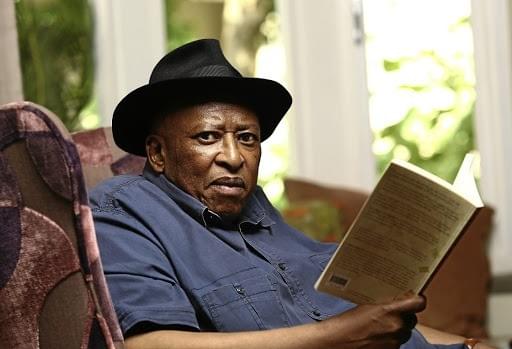
It’s official — South African literary giant Zakes Mda is among several authors who have won a historic class-action lawsuit in the United States against Anthropic, an artificial intelligence company found to have used their books to train AI models without permission.
The court ruled that several of Mda’s works — The Heart of Redness, The Madonna of Excelsior, The Whale Caller, She Plays with the Darkness, and Sometimes There Is a Void: Memoirs of an Outsider — were among those mined, copied, and fed into AI systems. The result was a remarkable R27.5 billion victory, shared among multiple authors who took a stand for their creative rights.
But when Zakes Mda reflected on the verdict, his reaction carried a familiar irony. “Damn! I didn’t know of my contribution in the development of AI... But what about our South African writers?” His question goes beyond the courtroom win. It asks something deeper about the ownership of creativity in the digital age.
It forces us to confront an uncomfortable truth — that while the world celebrates the innovation of artificial intelligence, very few pause to ask who actually built it, whose words and imaginations trained it, and whose intellectual property may have been quietly consumed along the way.
Mda’s victory is not just a win for writers; it’s a mirror reflecting the silence around African intellectual property in the age of algorithms. While global authors are now being compensated for the unlicensed use of their words, many African writers, poets, journalists, and storytellers may never even know that their creative labour has been scraped, stored, and reused by AI systems.
The issue is no longer about copyright alone — it’s about digital justice. Who gets credited? Who gets paid? Who decides how African stories, languages, and memories are used to train the very machines that will shape the future?
The irony of “fair use” — a legal principle in the United States that allows limited use of copyrighted work for research and education — becomes sharp when that “research” leads to profit. South Africa’s Copyright Act of 1978, currently under review, does not yet protect creators from the use of their work in machine-learning databases. Nor does it acknowledge the cultural and linguistic value embedded in African storytelling traditions.
As a result, writers and artists across the continent are left exposed in a system that still hasn’t caught up to the realities of digital exploitation.
There is a painful symmetry here. For decades, Africa’s minerals, labour, and land were extracted to fuel the progress of others. Now, it is our stories — our words, our songs, our digital footprints — that are being harvested to feed the engines of artificial intelligence. The global South’s creativity has become the quiet scaffolding of global innovation, and this time the extraction is invisible, coded into algorithms and hidden behind data servers.
Zakes Mda’s win should therefore be more than a headline. It should be a wake-up call. African writers, academics, and digital creators must demand transparency from AI companies about the data they use. Governments must strengthen intellectual property laws to reflect the realities of digital life.
Civil society must build coalitions that defend the creative economy, ensuring that the people whose work trains the machines of tomorrow are not left behind once again.
As someone deeply invested in digital activism, I see this as part of a broader conversation about justice — the right to be seen, named, and valued even in digital spaces. Our continent has long fought for land, for dignity, and for economic freedom. Now we must also fight for intellectual and digital freedom — the right to own our voices in the data age.
Zakes Mda’s story is more than a legal triumph; it’s a lesson in vigilance. Artificial intelligence is learning from us — our languages, our literature, our pain, and our beauty. It is time the world learns to do so with consent, credit, and fairness.
The question remains: how many African stories built these machines, and how many storytellers were never even asked?

